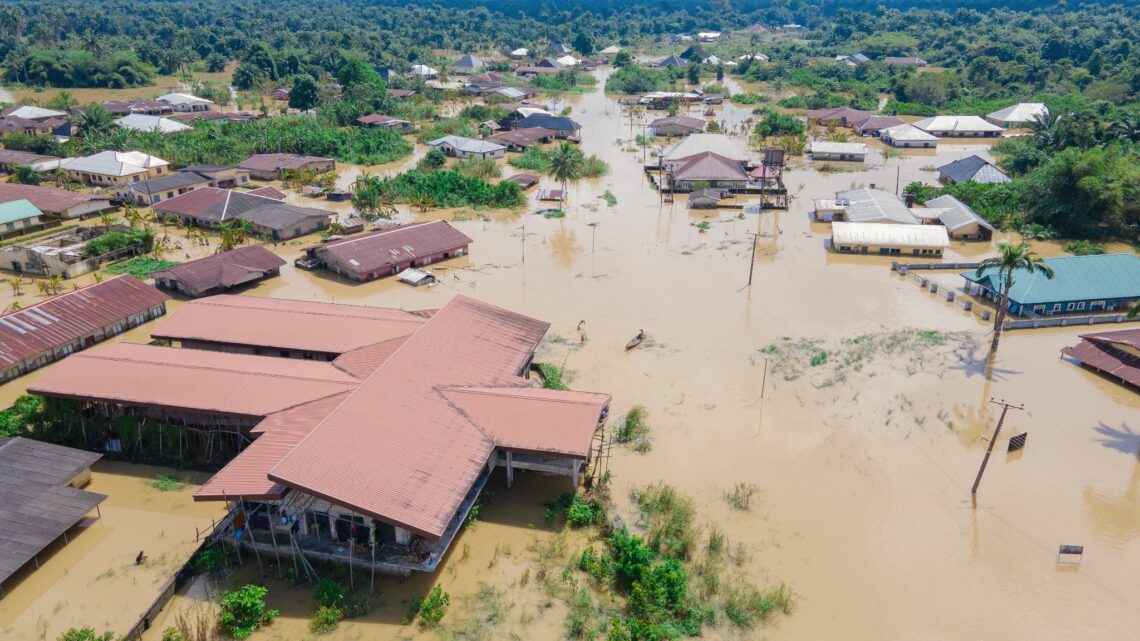As Nigeria braces for yet another cycle of devastating floods amid growing insecurity across its agricultural regions, experts and stakeholders are warning of an impending food crisis that could further strain the nation’s fragile economy and deepen hunger among millions.
According to the 2025 Seasonal Climate Prediction released by the Nigerian Meteorological Agency (NiMet), the country is expected to witness high intensity rainfall in May and June, which may lead to flash floods in coastal cities.
Combined with worsening violence in the North Central and North West zones where much of Nigeria’s grains, tubers, and legumes are produced—the dual threat of natural disaster and conflict is creating a perfect storm for widespread food shortages.
“This is a national emergency in slow motion,” said an agricultural economist in Lagos. Dr. John Ezeibe, “We are facing the compounding effects of climate change and insecurity. If we don’t act quickly and decisively, the food crisis of 2025 could be worse than what we saw in 2012 or 2022,” he said.
Food inflation, a key contributor to headline inflation, rose to 21.79 per cent year-on-year in March 2025, according to the NBS. On a month-on-month basis, food inflation was 2.18 per cent, up by 30.53 per cent from 1.67 per cent in February.
Prices of essential staples like rice, maize, yam, and tomatoes have more than doubled in the past year, driven by low productivity, high transportation costs, and supply chain disruptions caused by insecurity.
In Benue, Plateau, Niger, and parts of Kaduna, states known as Nigeria’s food basket, farmers are abandoning their lands due to repeated attacks by armed groups and communal clashes. Herdsmen-farmer conflicts and banditry have made large-scale farming increasingly untenable.
A displaced farmer from Makurdi, Benue State, Malam Mohammed Sule said, “I used to cultivate 10 hectares of maize and rice, but since 2022, I’ve not been able to plant anything. My family now depends on food aid. And now they say flood is coming again this year.”
NEMA estimates that more than 1.4 million people were displaced by floods in 2022. With current levels of preparedness still low, the humanitarian toll in 2025 could be even more severe.
The Nigerian Hydrological Services Agency (NIHSA) has also raised concerns that poor drainage infrastructure, coupled with the release of excess water from the Lagdo Dam in Cameroon, could lead to record-high river flooding—especially in the states of Kogi, Anambra, Delta, and Bayelsa.
“We must see this as both an agricultural and humanitarian crisis,” noted a financial economist at Nnamdi Azikiwe University, Awka, Dr. Felix Echekoba. “Floods don’t just destroy crops—they destroy roads, storage facilities, and entire communities. And when you add insecurity to the mix, food access becomes nearly impossible.”
The looming crisis is prompting calls for urgent policy intervention and investment in resilience. Experts said Nigeria must move swiftly to provide insurance and support to farmers, relocate vulnerable communities, and invest in climate-resilient agriculture.
“We need a war-room approach to food security,” said a financial economist at Auchi Polytechnic, Zakari Mohammed. “That means deploying technology, improving early warning systems, securing farmlands with better policing, and subsidising access to inputs. Otherwise, food import bills will skyrocket, and more Nigerians will fall into extreme poverty,” he said.
However, the chief executive at AntHill Concepts Limited, and member of the Board of Economists, NATIONAL ECONOMY, Dr. Emeka Okengwu, urged that farmers be wise enough to eschew planting their crops on flood plains, considering the fact that flooding of farmlands has become almost a yearly ritual in Nigeria.
The federal government has announced a N200 billion intervention fund for agriculture under its National Agricultural Growth Scheme. However, critics said the funds have not reached the smallholder farmers who need them most. Distribution bottlenecks, corruption, and lack of monitoring have long plagued agricultural interventions in the country.
“Floods are now an annual tragedy, but we still react like it’s a surprise,” noted an agronomist, Charles Ekpo. “And we can’t talk about food security without security. If farmers can’t go to their fields, it doesn’t matter how much rain or fertiliser you provide,” he added.
International organisations are also sounding the alarm. The Food and Agriculture Organization (FAO) recently noted that over 26 million Nigerians could face acute food insecurity by August 2025 if current trends persist. The United Nations World Food Programme (WFP) is already ramping up food assistance efforts in Borno, Yobe, and Adamawa States, where conflict and floods have compounded food scarcity.
Meanwhile, displaced farming communities in rural Nigeria are watching the skies and the news with growing dread.
“I don’t want to run again,” said 53-year-old mother of five, Mama Shola, in Lokoja, Kogi State. “Last time the water came, it swallowed my farm. We slept in a school for three weeks. Now they say the flood is coming again. What kind of life is this?”
As World Earth Day approaches and conversations around climate action intensify globally, Nigeria faces a stark reminder: without urgent investment in flood resilience and rural security, the dream of food self-sufficiency may remain a distant mirage. The time to act is now—before the waters rise and the hunger deepens.





